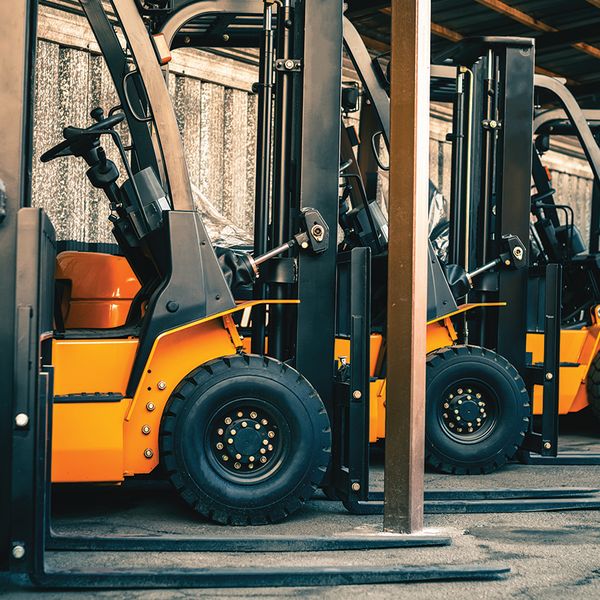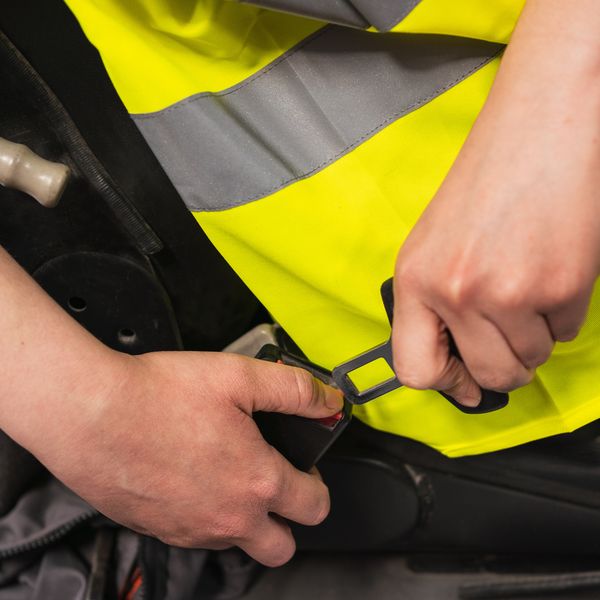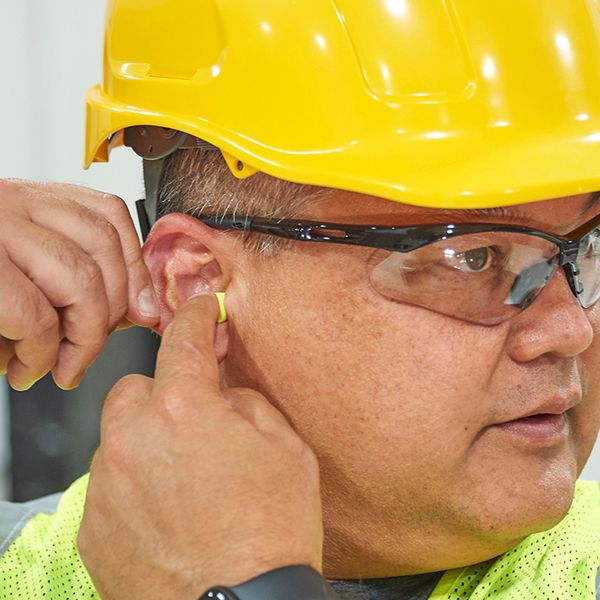Headphones = Compliance headaches
One question that is often asked is what is OSHA’s stance on listening to headphones or noise canceling devices while operating forklifts? The short answer is that there isn’t a standard that explicitly states that they are not allowed, but they are strongly discouraged.
Neither OSHA’s occupational noise exposure regulation (29 CFR 1910.95), nor the powered industrial truck standard (29 CFR 1910.178), currently address the use of headphones in the workplace, OSHA has issued multiple Letters of Interpretation that do not recommend the practice. Several accidents have been attributed to headphones and OSHA has cited the General Duty Clause for not protecting employees from a recognized hazard.
This information is detailed in several Letters of Interpretation, including the following:
- Aug 15, 1985, liability of portable stereo headsets
- April 14, 1987, for use of Walkman, Tape or CD players
- December 7, 1987, regarding “ear blasts”
- September 06, 2019, for construction sites
Why is wearing these devices so discouraged? There are a few reasons. The first being that employees may not hear hazards or people around them. This is especially concerning when employees work in hazardous areas such as manufacturing or warehouses where it may already be difficult to hear. Noise-canceling devices, by their design, could cancel warning signals putting forklift operators and pedestrians at increased risk.
Additionally, wearing headphones during machinery and equipment operations exposes workers to compounded noise levels (workplace noise plus headphone noise) that can result in exceeding OSHA permissible exposure levels for hearing protection. It is also difficult for employers to regulate the amount of noise employees are exposed to, which can contribute to an OSHA recordable standard threshold shift.
Key to remember: OSHA does not prohibit, but discourages, the use of headphones and noise-canceling devices in the workplace where employees need to be aware of their surroundings. Wearing these devices can result in the operator not hearing alarms and shouted warnings, which can lead to accidents, such as a forklift striking a pedestrian.






















































